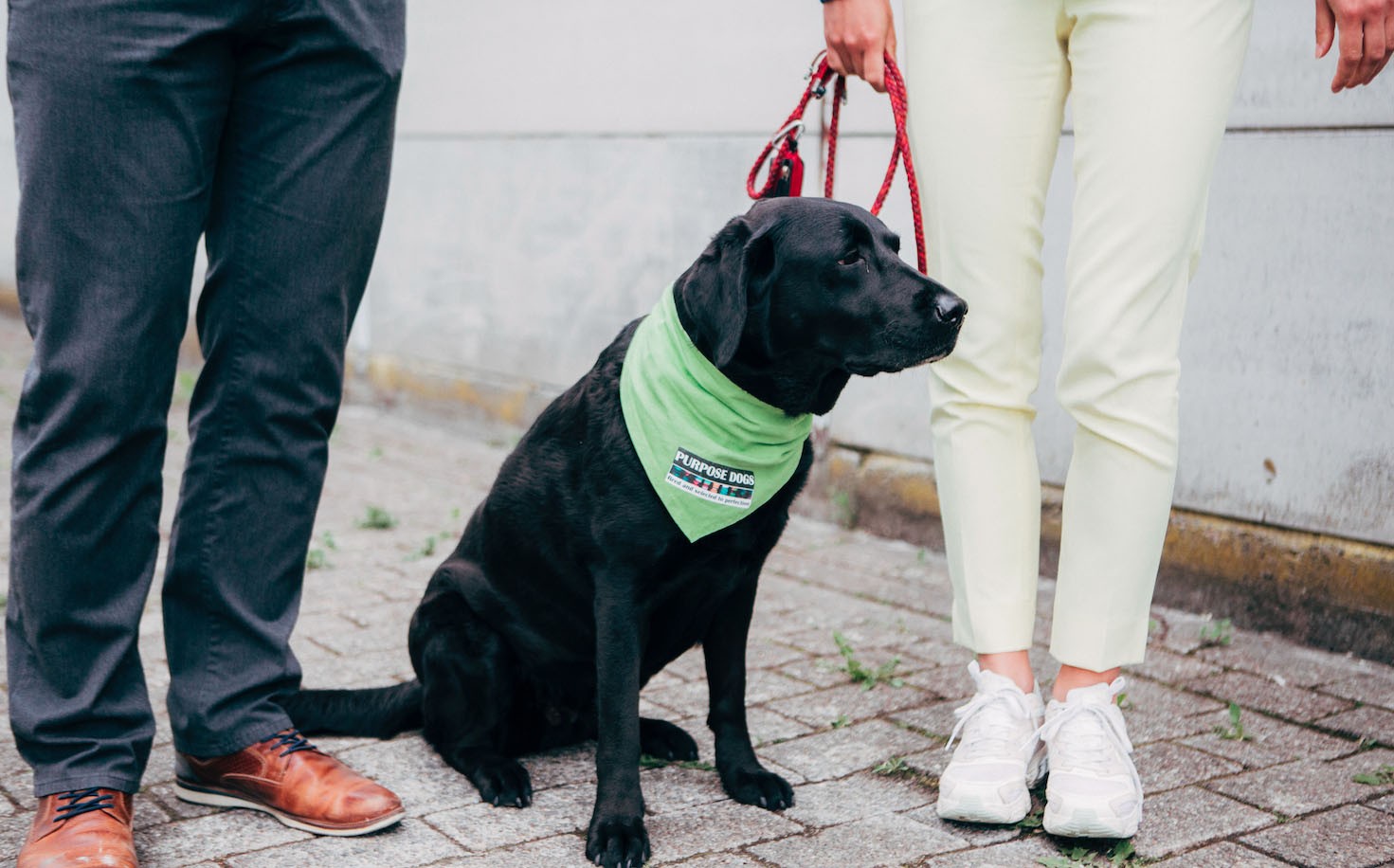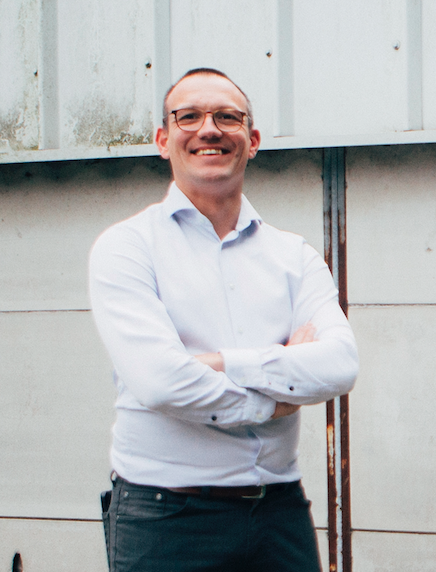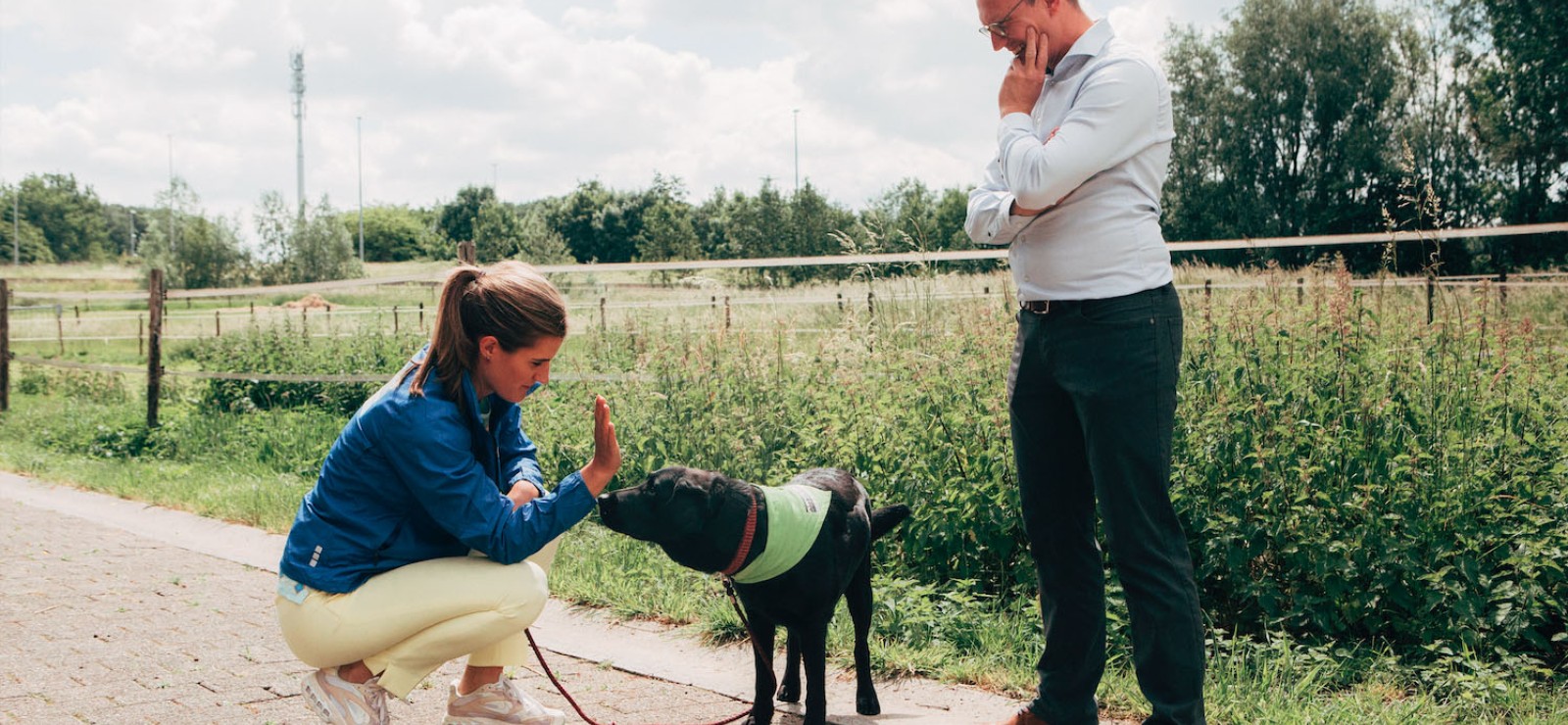Only forty per cent of assistance dogs in training actually end up becoming a proper assistance dog. This problem not only causes long waiting lists, it also costs a lot of money. A collaboration, in the form of a professorship between professor Bart Broeckx and the non-profit organisation Purpose Dogs aims to find a solution.
“I have a dog myself, but he would be completely unsuitable as an assistance dog. Not because of any physical problems, but because he is way too enthusiastic (laughs).”
Professor Bart Broeckx is doing research into assistance dogs and why they are often rejected before they can even carry out their tasks. “A dog must be totally fine before it is possible to become an assistance dog. Just imagine: a dog with hip problems that needs to help a blind person across the road. Out of the question”, says professor Broeckx.
Shortage of assistance dogs
Sadly, the reality is that around sixty per cent of all assistance dogs in training do not end up becoming one. The reasons can be varied: behavioural problems, but also orthopaedic problems such as hip and elbow dysplasia can be the cause of rejection.
Whatever the reason: it leads to a shortage of assistance dogs. “In order to meet demand we need to be able to train 150 pups a year. We are not up to that level, which means that people need to wait a long time for an assistance dog”, says Paulien Proesmans from Purpose Dogs vzw. This non-profit organisation runs a breeding programme for assistance dogs in Belgium.

High cost per dog
Purpose Dogs vzw has recently begun supporting the research into assistance dogs conducted by professor Broeckx in the form of a professorship. “A trained assistance dog costs around 25,000 euros. A dog that drops out during the training costs an average of 10,500 euros”, explains professor Broeckx. “Every euro is important to charities such as Purpose Dogs. I don’t need to explain how essential it is that we reduce the number of dogs dropping out to an absolute minimum.”
“That’s why we are investigating not only the hereditary level of complaints such as hip and elbow dysplasia, but also heart complaints, based on data from x-rays, DNA tests and cardiology checks. On the other hand, we are also setting objective behaviour tests with which to predict potential behavioural issues in pups. So it covers a broad spectrum”.
Ultimately, professor Broeckx and Purpose Dogs both have the same ambition: to minimise the number of rejected dogs. “The dogs can be used as guide dogs for the blind, but we can also train them to help people with epilepsy or diabetes”, adds Paulien Proesmans. “The animals can even be used to help people with autism or to support the elderly in residential care. So assistance dogs can truly benefit human lives.”

Professor Bart Broeckx graduated as a veterinarian from Ghent University in 2011. In 2016, he obtained his PhD in Pharmaceutical Sciences, also at Ghent University. He then did a post-doc at the Laboratory of Animal Genetics of the Faculty of Veterinary Medicine, where he has been appointed Professor (lecturer/assistant professor) of Animal Genetics since 2018.
A professorship is a partnership in which a company, social institution or private individual commits for a longer period to fund topical scientific research or education at Ghent University. You support the research/education because you believe that society will benefit.
Read also
Is a stool transplant a potential treatment for Parkinson’s?
A recent study into Parkinson’s disease has shown that a stool transplant may constitute a new and valuable treatment of the disease. “It offers a potentially safe, effective and cost-efficient way of alleviating the symptoms and improving the quality of life of millions. A 'bacterial pill' might replace the stool transplant in the future. But more research is needed.”
Kathy (54) fights peritoneal cancer through top-level sport: “Without swimming I lose my anchor”
In March 2021, Kathy received life-changing news: a tumour on her appendix marked the beginning of a long and difficult battle against peritoneal cancer. Yet she decided to do more than fight just for herself. She channels her strength into helping others by raising donations for the Ghent University Peritoneal Cancer Fund.
Deceased Juno’s friends run marathon for cancer research
Friends and relatives of Juno De Hauwere recently gathered at the starting line of the Ghent marathon. They weren’t just looking to achieve a sporting milestone, but above all they were there to honour Juno’s memory and raise funds for leukaemia research.
A charitable cause as a birthday gift: Rik and Bea’s inspiring fundraiser
Ghent University alumni Rik and Bea wanted to celebrate their most recent birthday with a big party and they had a very clear gift preference: No flowers or chocolates, they wrote in the invitation, but a donation to the Marleen Temmerman Fund of Ghent University. Their fundraising initiative brought in close to €5,000 for the Fund.


